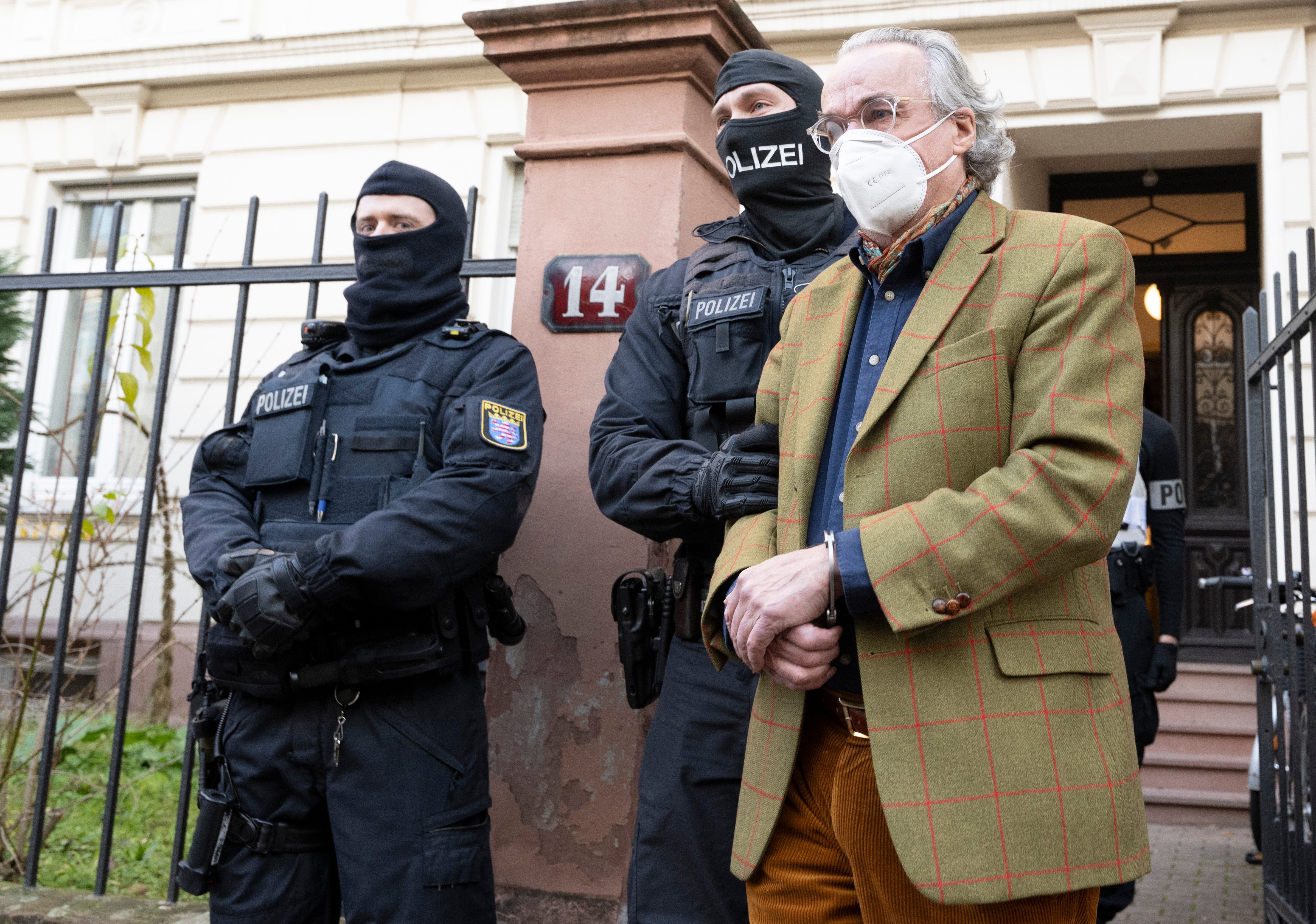Trial of most prominent suspects in alleged German coup plot to open next month
A court says nine suspects, among them a self-styled prince and a former far-right lawmaker, will go on trial next month in the most prominent of three cases connected to an alleged plot to topple the German government that came to light in late 2022

Your support helps us to tell the story
From reproductive rights to climate change to Big Tech, The Independent is on the ground when the story is developing. Whether it's investigating the financials of Elon Musk's pro-Trump PAC or producing our latest documentary, 'The A Word', which shines a light on the American women fighting for reproductive rights, we know how important it is to parse out the facts from the messaging.
At such a critical moment in US history, we need reporters on the ground. Your donation allows us to keep sending journalists to speak to both sides of the story.
The Independent is trusted by Americans across the entire political spectrum. And unlike many other quality news outlets, we choose not to lock Americans out of our reporting and analysis with paywalls. We believe quality journalism should be available to everyone, paid for by those who can afford it.
Your support makes all the difference.Nine suspects, among them a self-styled prince and a former far-right lawmaker, will go on trial next month in the most prominent of three cases connected to an alleged plot to topple the German government that came to light in late 2022, a court said Tuesday.
The Frankfurt state court said the trial will open on May 21. It made clear that it expects the proceedings to last well into 2025.
Federal prosecutors in December filed terrorism charges against a total of 27 people, one of whom has since died. The Frankfurt case features the most prominent suspects, including Heinrich XIII Prince Reuss, whom the group allegedly planned to install as Germany’s provisional new leader; Birgit Malsack-Winkemann, a judge and former lawmaker with the far-right Alternative for Germany party; and a retired paratrooper.
Prosecutors have said that the accused believed in a “conglomerate of conspiracy myths,” including Reich Citizens and QAnon ideology, and were convinced that Germany is ruled by a so-called “deep state.”
Adherents of the Reich Citizens movement reject Germany’s postwar constitution and have called for bringing down the government, while QAnon is a global conspiracy theory with roots in the United States.
According to prosecutors, the group planned to storm into the parliament building in Berlin and arrest lawmakers. It allegedly intended to negotiate a post-coup order primarily with Russia, as one of the allied victors of World War II.
Most of the nine suspects are charged with membership in a terrorist organization and “preparation of high treasonous undertaking.”
Another 17 alleged members of the group have been charged in separate indictments at courts in Stuttgart and Munich. In Stuttgart, the trial of nine of those suspects is scheduled to start on April 29. The other eight will go on trial in Munich on June 18.